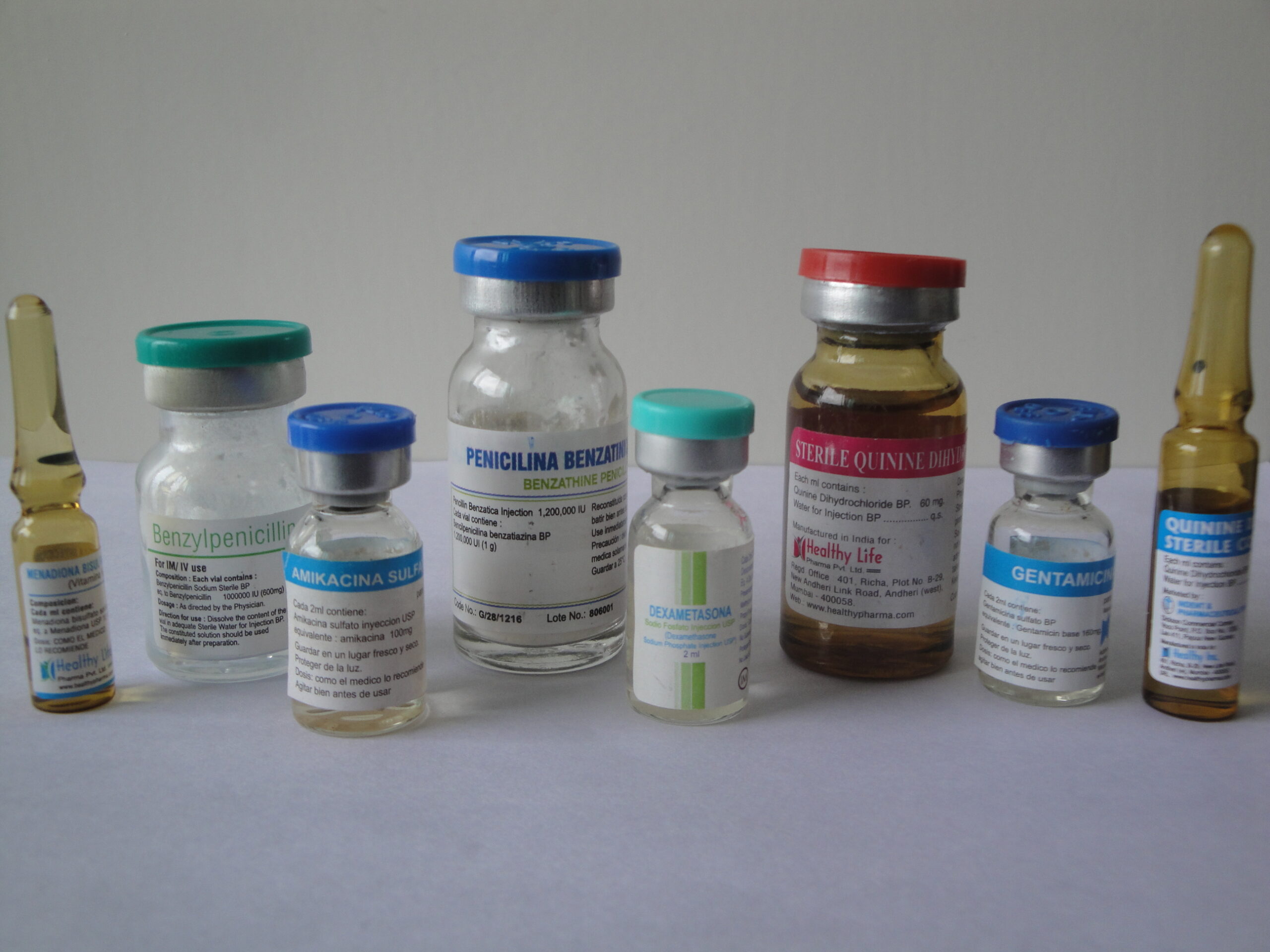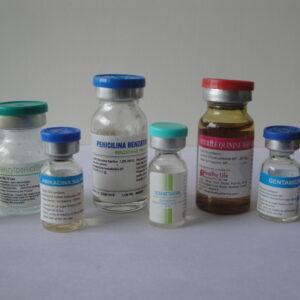Description
Ivermectin & Clorsulon veterinary INJECTION
Ivermectin and Clorsulon injection is a veterinary medication used primarily in the treatment and prevention of parasitic infestations in livestock. Here’s a breakdown of their uses:
Ivermectin :
Ivermectin is a broad-spectrum antiparasitic medication that is effective against various internal and external parasites in animals. It belongs to the class of drugs called avermectins.
It is commonly used to control and treat parasites such as gastrointestinal roundworms, lungworms, mites, lice, and some external parasites like ticks.
In livestock, including cattle, sheep, goats, pigs, and horses, ivermectin is frequently used to prevent and treat parasitic infections, improving the overall health and productivity of the animals.
Ivermectin works by disrupting the nervous system and muscle function of parasites, leading to their paralysis and eventual death.
Clorsulon :
Clorsulon is an anthelmintic (anti-parasitic) drug that is specifically effective against liver flukes, which are parasitic flatworms that infect the liver and bile ducts of livestock such as cattle, sheep, and goats.
Liver flukes can cause significant damage to the liver, leading to reduced productivity, weight loss, and sometimes death in severe cases.
Clorsulon works by inhibiting enzymes that are essential for the metabolism and survival of liver flukes, ultimately killing them.
It is commonly used in areas where liver fluke infestations are prevalent or suspected, either as a preventive measure or as a treatment for existing infections.
Combining these two medications in a single injection may offer broader protection against various parasites, including both internal and external parasites, as well as liver flukes, in animals. However, the specific usage, dosage, and administration instructions should always be determined by a qualified veterinarian based on factors such as the type of animal, its age, weight, health status, and the severity of the parasitic infestation. Additionally, it’s crucial to follow proper withdrawal periods for meat and milk production animals to ensure food safety.
Ivermectin and Clorsulon are medications commonly used in veterinary medicine, particularly for the treatment of parasitic infections in animals. Here’s an overview of their uses:
Ivermectin
Class: Ivermectin belongs to the class of drugs known as antiparasitic agents.
Mechanism of Action: It works by affecting the nervous system of parasites, leading to their paralysis and death.
Indications:
Treatment and control of various internal and external parasites in animals.
Commonly used against nematodes, mites, and some types of insects.
Common Veterinary Uses:
Treatment of mites (such as mange mites) in dogs and cats.
Control of gastrointestinal worms in livestock, horses, and pets.
Prevention and treatment of heartworm disease in dogs.
Control of ectoparasites like ticks and lice.
Administration: Typically administered via injection, but formulations for oral or topical use are also available.
Clorsulon :
Class: Clorsulon is a member of the benzimidazole family of compounds.
Mechanism of Action: It is a flukicide, meaning it is effective against certain types of flatworms (flukes) that infect the liver and other organs.
Indications:
Treatment of liver fluke infections in animals.
Common Veterinary Uses:
Used in the treatment of liver fluke infections, which are particularly common in ruminants (cattle, sheep, goats).
Effective against various species of liver flukes.
Administration: Typically administered by injection.
It’s important to note that the usage of these medications should be based on a veterinarian’s prescription and guidance. Improper use or dosage can lead to potential side effects and may not be effective in treating the intended conditions. Additionally, regional regulations may vary regarding the availability and prescription requirements for these medications. Always consult with a qualified veterinarian before administering any medications to animals.



